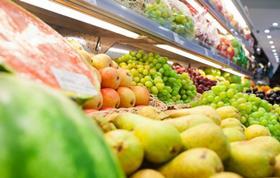
It has been just over six months since Russia announced its year-long ban on agricultural products from the G7 group of countries, but it would take a surfeit of confidence to attempt to predict a precise date for its ending.
According to Philippe Binard, general delegate for Freshfel Europe, the reality is that 'the ban could be prolonged, the list of products could be changed or, were the EU sanctions to be relaxed, the ban could be partially or even completely removed'.
'But I do not have a crystal ball,' he added.
Binard said that the list of banned products was worth an estimated US$7bn, including US$5bn from the EU, around half of which was fruit and vegetables.
However, he said it was important to remember that, even if the embargo were to end today, several sanitary and phytosanitary (SPS) bans would remain in place, including on Polish apples.
'Some products are under a double embargo,' he stated. 'The EU is challenging Russia at the World Trade Organisation on some meat issues, but it is important to keep discussions going to solve these SPS issues should the political embargo be lifted.'
One silver lining for EU producers is the economic situation currently afflicting Russia and the massive drop in the value of the rouble.
'This would make trade relatively unattractive should all the above bans be lifted,' said Binard. 'Take a look at the performance of Turkish and Egyptian exporters to Russia despite the gap on the market left by EU companies.'
EU exporters can equally take heart from the fact that exports to countries outside of the EU have slightly increased despite the embargo.
'EU Exporters have found new routes and new markets,' said Binard, 'even if value has dropped significantly. At Freshfel, we continue to work with the European Commission to look at diversification and to address market access issues, including regrettably with G7 members like the US, Australia and Japan, which still impose excessive protectionist SPS barriers that impede trade.'



